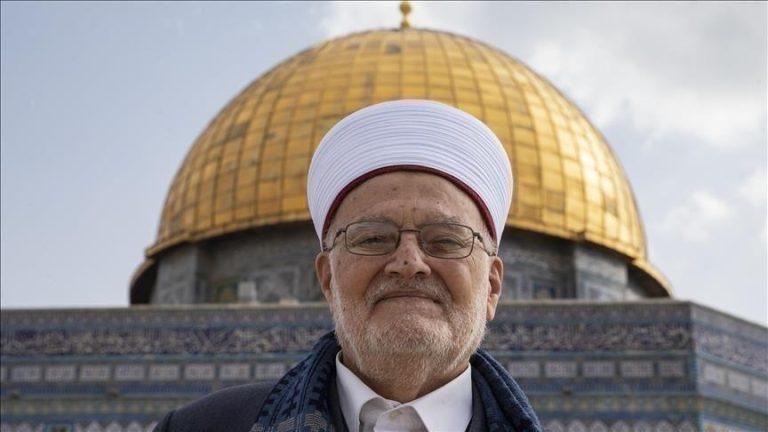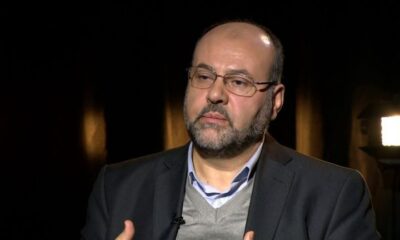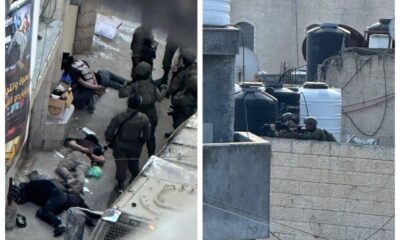OCCUPIED JERUSALEM, (The Palestine Foundation Pakistan)
Israeli authorities began a new procedural hearing Tuesday for Sheikh Ekrima Sabri, the preacher of Al-Aqsa Mosque and head of the Higher Islamic Council in Jerusalem, in what his legal team describes as a politically motivated prosecution aimed at silencing one of the city’s most influential religious voices.
The Israeli Magistrate Court in Jerusalem convened to read the indictment, which includes three allegations: condolence speeches delivered by Sheikh Sabri in 2022 in Shuafat Refugee Camp in Jerusalem and in Jenin Refugee Camp for the slain Palestinians Udai Tamimi and Raed Hazem, and a farewell sermon at Al-Aqsa Mosque mourning Palestinian leader Ismail Haneyya.
Sheikh Sabri’s lawyer, Khaled Zabarqa, said the charges fall within a “systematic political persecution,” noting that the hearing is procedural rather than substantive.
Zabarqa told Anadolu that the defense team will request additional evidence to refute the indictment and will seek another court date to formally respond. He said the case “extends Israel’s racist political pursuit of Sheikh Sabri and other Jerusalemite figures to restrict their role and limit their public influence.”
He added that Sheikh Sabri has faced years of punitive measures, including travel bans, repeated bans from entering or preaching at Al-Aqsa, demolition orders targeting the building where he lived in one of its apartments, and restrictions on his contact with other Palestinian figures.
Zabarqa noted that the Sheikh has also been the target of an “extreme right-wing incitement campaign calling openly for his assassination,” yet Israeli authorities have taken no action despite evidence submitted to prosecutors.
Before entering the courtroom, Sheikh Sabri said he is facing threats intended to intimidate him. “They told me, ‘Your fate will be like Ahmed Yassin,’” he said, expressing defiance in the face of an Israeli campaign he described as an attempt to silence all defenders of Al-Aqsa amid an aggressive push to reshape Jerusalem’s identity under Israel’s minister of national security Itamar Ben-Gvir.
Sheikh Sabri said Israeli authorities are “deliberately mixing Islamic religious concepts with political interpretations that distort their meaning.” He added, “The expressions we use are part of our religious duty, and Israeli authorities have no right to interpret them according to their political interests.”
He stressed that the charges and threats “have no legal basis but are attempts to muzzle voices defending Al-Aqsa.”
The Council of Scholars and Preachers in Jerusalem warned that the trial represents “a dangerous assault on religious authority in Jerusalem,” emphasizing that targeting Sheikh Sabri means targeting all the Palestinian religious leadership. The council said threats against him now include “explicit calls for murder,” warning of the consequences of regional and international silence.
Dr. Ali al-Qaradaghi, secretary-general of the International Union of Muslim Scholars, condemned the trial as an attempt to “break the spirit” of a figure who has represented “the voice of truth and freedom in Jerusalem for decades,” arguing that Israel is attempting to reshape the city’s religious landscape by undermining its scholars.
Journalist Khadija Benguena described the trial as “an unprecedented and historic attempt to erase Jerusalem’s religious identity” by targeting one of the most senior Islamic scholars in the world, who has preached from Al-Aqsa for more than fifty years.
The prosecution of Sheikh Ekrima Sabri marks a dangerous escalation in Israel’s policy toward Palestinian religious institutions. It is not merely a legal case but an attempt to intimidate an entire religious establishment and restrict freedom of expression in Jerusalem.
As pressure intensifies, Al-Aqsa Mosque remains at the heart of the confrontation, and figures like Sheikh Sabri embody the last line of defense protecting the Palestinian and Islamic identity of the holy city. The broader Palestinian and Islamic world now faces a decisive moment: silence toward this case may have lasting consequences for the ability of scholars to protect Jerusalem’s sacred sites.











